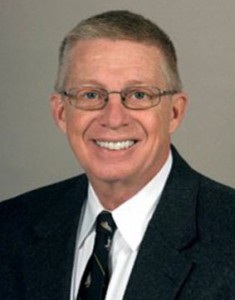JEFFERSON CITY, MO. — Gov. Jay Nixon announced his veto today of two different bills containing language that would change the regulation of white-tail deer in the state of Missouri.
Senate Bill 506 and House Bill 1326 both contained provisions redefining captive cervids as privately owned livestock instead of wildlife. The change would mean that the Missouri Department of Agriculture, not Conservation, would oversee the regulation of captive deer populations across the state, and the deer would be regulated in similar ways to privately owned cattle or elk.
“For us, it’s a lot like the elk in this state,” said Sam James, President of the Missouri Whitetail Deer Association. “In Missouri there are two kinds of elk, there’s the elk out in the wild that are treated like wildlife, and then there’s the elk that people own as private property, and they are both treated differently. All we are trying to do is say that in our operations, our deer are privately owned livestock.”

Both bills also contained provisions relating to agriculture unrelated to captive cervids. Rep. Casey Guernsey sponsored HB 1326, which deals largely with the state’s dairy industry. Guernsey said Nixon’s decision on today’s veto shows he’s on the side of “unelected bureaucrats” and not Missouri farmers.
“This is the governor’s proposal,” Guernsey said “This is their idea from last year. I just don’t know how you can make such a drastic change in your mind on any issues in such a short period of time.”
Guernsey said the bill closely mirrored other animal-health related provisions and that Nixon’s veto showed he wasn’t serious about protecting the private property rights of Missouri farmers.
Rep. Chris Kelly, who supported both underlying bills, applauded Nixon’s veto. Kelly agrees with the Department of Conservation that the spreading of chronic wasting disease among white-tailed deer is accelerated in captive cervid operations. Operators of these deer farms flatly deny this charge.
“I agree that the evidence is not absolutely scientifically conclusive that it is spread primarily by captive cervids” Kelly said. “But the evidence is probable and very strong.”
Kelly said he was disappointed that the language was added onto two “very good” agriculture bills and that House leadership bottled-up attempts to alter or remove the deer-related amendments.
“The industry is looking to avoid reasonable regulations,” Kelly said. “House leadership wouldn’t even allow amendments clarifying that you can’t shoot these animals while they are still drugged from transportation. That’s probably a good indicator of extremism. If you’re trying to avoid democracy, you’re probably doing something wrong.”
Nixon also maintained that the state constitution dictates that the department of conservation oversee the deer populations, but James says that this is an assumption from the department, and not something ever fully clarified in state law.
While Kelly said Nixon made the right call in vetoing the deer-related language, he also agreed with Guernsey that much of the underlying bills needed to become law. Kelly told The Missouri Times that he would publicly and privately urge the governor to call a limited special session to craft agriculture bills without the captive cervid language.

Guernsey applauded Kelly’s attempt and said the longtime Democrat lawmaker was “instrumental” in helping with his dairy bill, but he didn’t hold out much hope in a special session.
“I applaud Representative Kelly for seeking a solution,” Guernsey said. “I have tremendous respect for him. But I would be astounded if the governor called an extraordinary session on this issue, because I don’t think the governor sees this issue as important.”
Collin Reischman was the Managing Editor for The Missouri Times, and a graduate of Webster University with a Bachelor of Arts in Journalism.




